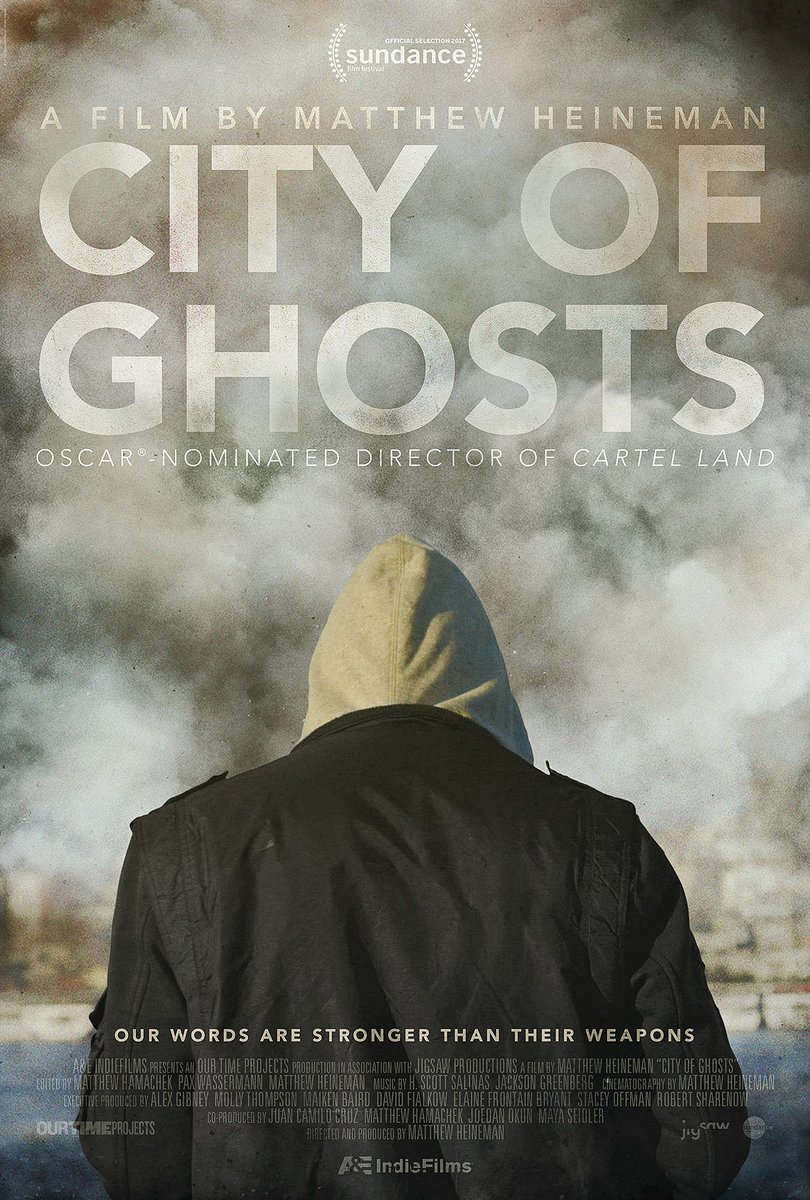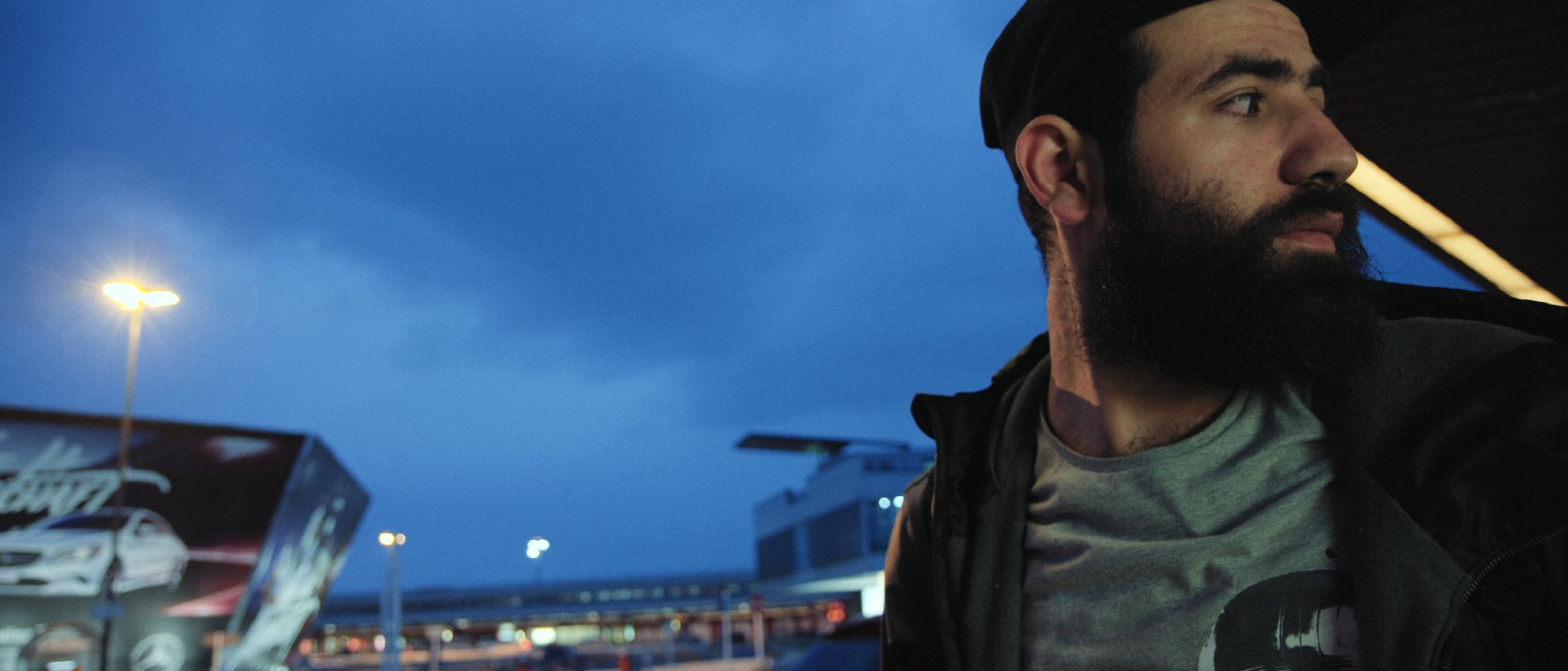 Consider it the Spider-Man: Homecoming effect. One of the smartest things that director Matthew Heineman does in his film City of Ghosts is do away with any sort of Syrian primer for the audience. Far too many movies do not trust their audience to already know a thing or two about the subject at hand and in this documentary, ostensibly about the Syrian citizen journalist group Raqqa is Being Slaughtered Silently (RBSS), knows that we already have the basic gist of this conflict filed away and instead dives right into its story.
Consider it the Spider-Man: Homecoming effect. One of the smartest things that director Matthew Heineman does in his film City of Ghosts is do away with any sort of Syrian primer for the audience. Far too many movies do not trust their audience to already know a thing or two about the subject at hand and in this documentary, ostensibly about the Syrian citizen journalist group Raqqa is Being Slaughtered Silently (RBSS), knows that we already have the basic gist of this conflict filed away and instead dives right into its story.
Like I said, it’s a smart move, and one that already marks this as an improvement over the director’s last film, the Oscar-nominated, but sloppy Cartel Land. Still, while it does indeed have a keener focus on the subject at hand, the frustrating elements of that earlier film nonetheless remain in Heineman’s repertoire.
It strikes me clear as day, for instance, that Heineman is very consciously aware of making documentaries that are cinematic. And while there is absolutely nothing wrong with that, there is the tendency for this filmmaker to overdo it in a way that feels self-consciously aware and even manipulative. There is the refined and fast-paced editing, glimmering with often too beautiful cinematography that occasionally feels like a warzone paradox and a reliance on shock over character rather than maximizing the remarkable access he has garnered. He screwed that pooch in Cartel Land, but City of Ghosts does a markedly better job of avoiding that pitfall, getting much closer to the heart of the matter with his RBSS subjects. But those instincts aren’t entirely vanquished.

City of Ghosts begins with the organisation’s winning of the 2015 International Press Freedom Award, and the film is at its best when Heineman focuses on the world of these journalists and their accomplishments in and outside of Syria as well as the human toll that it takes to bring them to the world (even if the world isn’t paying attention). We follow several who are Raqqa refugees in Germany – Aziz, Hamoud, and Mohamad – who nonetheless work intently on covering the goings on in Syria, often in the form of secretly filmed video from those on the ground, fact-based reporting, and essentially creating a living, breathing dossier of Syrian atrocities.
The Best Documentary Short category at the 2016 Oscars featured three films about Syria (including the winner, The White Helmets). This year alone we’ve seen Evgeny Afineevksy’s Cries from Syria (coincidentally, Afineevsky’s Winter on Fire was an Oscar nominee the same year as Cartel Land) and Firas Fayyad’s Last Men in Aleppo and no doubt many more on the festival circuit. If the Syrian conflict has begun to feel repetitive on screen then heaven help us for such a privileged train of thought. But Heineman was cunning to focus on the RBSS. It is a unique, unexpected take, and one that I admit I knew very little about. I appreciated the film purely on that level alone.
And yet still, this film is more often than not captivating and attention-worthy film, the pace is frustratingly fast. So much so, that the minutia of the RBSS initiative is often neglected and not properly navigated in favour of footage of Islamic State executions and torture (and in one narrative detour, a segment about ISIS’s propaganda machine that is interesting, but out of place). The uncensored videos, filmed secretly by locals on the ground, are powerful, but too often Heineman feels like he is pulling back from the personal drama and focusing on this shock tactic.
I admit I struggle with the dynamic of feeling these videos are necessary parts of the story, especially when in detailing the state of mind that lead to the journalist’s actions, and yet ultimately as the credits rolled I felt they did a disservice, commanding too much focus. Heineman’s aforementioned directorial instincts too often get the better of him and in these instances, City of Ghosts becomes less about its intellectual journalistic heroes and less trusting of its audience to understand what is happening in Syria. It works best when illuminating of parts of this war that audiences are most likely unaware of and it’s at its best when doing this, shining a light on important people.
Release: Opened in NYC on the 7th and is now expanding nationwide.
Oscar chances: Definitely. Especially if the doc branch feel they have already given a documentary about the White Helmets attention, but still want to recognise Syria as one of the most important subjects of the year. I can easily see it being nominated. After Cartel Land, he is in their club.